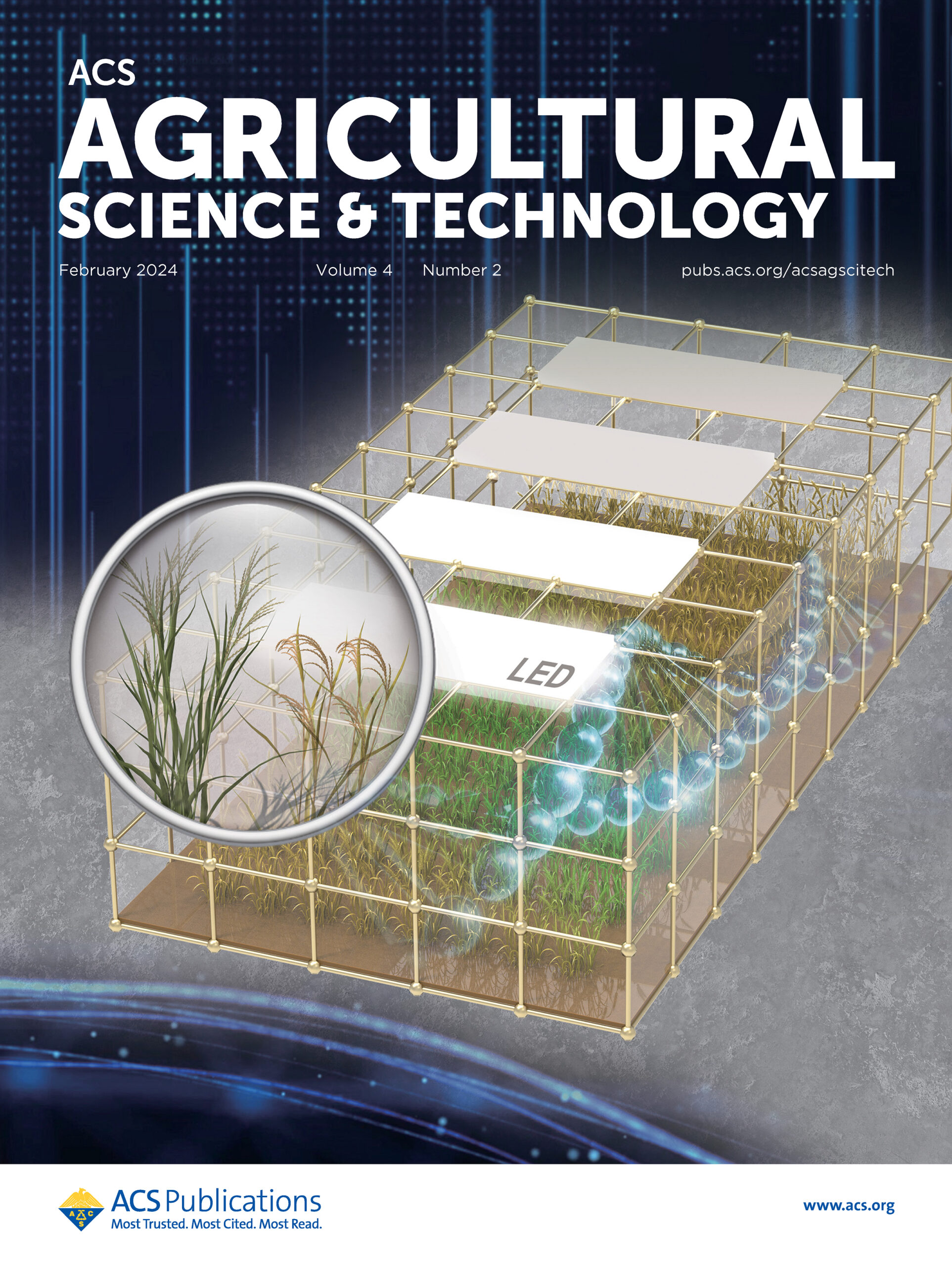4‑Methyl-1-(prop-2-yn-1-yl)‑1H‑1,2,3-triazole (MPT): A Novel, Highly Efficient Nitrification Inhibitor for Agricultural Applications
Sibel C. Yildirim, Joses G. Nathanael, Katharina Frindte, Otávio dos Anjos Leal, Robert M. Walker, Ute Roessner, Claudia Knief, Nicolas Brüggemann, and Uta Wille.*
4-Methyl-1-(prop-2-yn-1-yl)-1H-1,2,3-triazole (MPT): A Novel, Highly Efficient Nitrification Inhibitor for Agricultural Applications.
ACS Agricultural Science & Technology 2024 4 (2), 255-265
DOI: 10.1021/acsagscitech.3c00506
Nitrogen fertilization in agriculture has serious environmental consequences, including production of the greenhouse gas nitrous oxide (N2O), pollution of groundwater with nitrate (NO3–), and river eutrophication. Nitrogen use efficiency can be increased by amending fertilizers with inhibitors to slow microbial nitrification processes, which transform ammonia to NO3–. Unfortunately, commercial inhibitors have failed to perform reliably across various agroecosystems for reasons not well understood. Using a combination of bacterial studies and soil incubations, we demonstrate here that 4-methyl-1-(prop-2-yn-1-yl)-1H-1,2,3-triazole (MPT) exhibits superior nitrification inhibitory properties. Unlike the commercial reversible inhibitors, MPT acts as a mechanistic, irreversible inhibitor of the key enzyme ammonia monooxygenase, enabling effective retention of ammonium (NH4+) and suppression of NO3– and N2O production over 21 days in several agricultural soils with pH values ranging from 4.7 to 7.5. A bacterial viability stain and a suite of freshwater and terrestrial ecotoxicity tests did not indicate any acute or chronic toxicity. Real-time quantitative polymerase chain reaction (qPCR) analysis revealed an enhanced inhibitory effect of MPT on both ammonia-oxidizing bacteria and archaea. Thus, MPT outperforms currently available nitrification inhibitors and has great potential for broad application in various agricultural settings.




